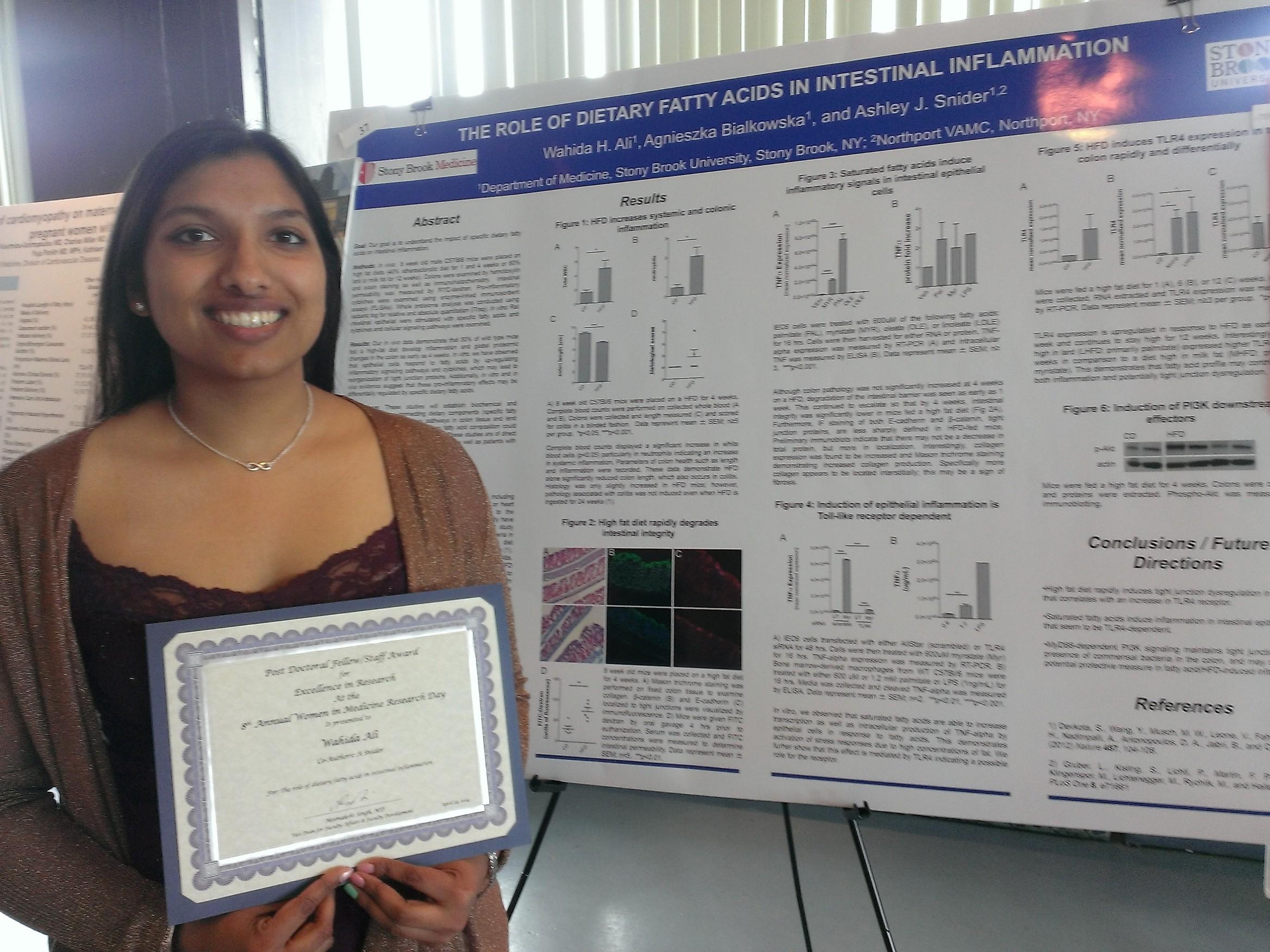Stand up for Science: Practical Approaches to Discussing Science that Matters
Expert Voices Gallery / Lesson 3 of 47
Expert Voice Q&A - Wahida Ali
0 minutes
Expert Voice Q&A – Wahida Ali

Information about Wahida Ali
What is your name, title, and role at the University of Michigan?
My name is Wahida Ali. I am a postdoctoral research fellow in the rheumatology department at the University of Michigan.
Why are your public engagement efforts in education and/or outreach (to you and/or to the cause you’re working to promote)?
I think public engagement is hugely important especially at this time because I think transparency helps the public understand science to make informed, fact-based policy decisions. I also think that when scientists engage with the public, it helps put a face to the stories and betters the chances of trust in science.
Wahida Ali on Audience
Who do you interact with when working in education and/or outreach? What makes this audience different from other groups that you might interact with?
I teach, I volunteer, and I talk to really any interested party.
What suggestions do you have for making interactions with educators, learners, and/or lay-audiences as effective as possible?
I think being approachable and engaging makes for effective interactions. I ask a lot of questions and spend a lot of time listening to my audience to try to gauge what is of most importance to them. I try to tailor my interactions with them based on their interests.
What is the biggest challenge you face when trying to work with educators, learners, and/or lay-audiences? What is the biggest reward?
I personally have met a lot of people who do not trust scientists and feel that they think they are better than the general public/ are uncaring people. The biggest reward for me is helping someone come to a fact-based conclusion on their own. Science doesn’t always agree with itself so I try to show people ways that they can tell good experiments from bad ones on their own. Giving them the time and resources to figure out how they can find and decipher information is invaluable.
Wahida Ali on Messaging
When you’re planning to interact with educators, learners, and/or lay-audiences, how do you decide what you want to focus on? If a scientist wanted a single idea to “stick” in the mind of educators, learners, and/or lay-audiences, what advice would you give them as to how best to shape/pitch that idea?
For me, messages that I want to stick are personal and connect with the audience in a feel-good way. I find this difficult because as a scientist, we’re taught to not focus on the results of a single, golden experiment, but the results as a whole and make decisions on statistics. But when you are trying to convince someone of a point, I personally would use a story of triumph and overcoming odds.
Wahida Ali on Narrative
Do you use stories or narratives as a tool to communicate with educators, learners, and/or lay-audiences? If so, what kinds of narratives?
I do use a narrative structure when I give presentations. I find that audiences are usually interested in my personal experiences too so I usually start with how the question that I wanted to ask sounded simple enough in theory, but then I tried to do x, y, and z and found none of those worked until I tried n and then I got beautiful data! This fits a tension-building narrative and will generally keep the audience wanting to find out what happens next.
What kinds of documents or presentations are most effective at capturing and maintaining a educator, learner, or lay-audiences’ attention?
My PhD advisor liked to tell students that papers can be written like mystery novels. The intro foreshadows your hypothesis by giving people all of the background they need to guess your question and then your results build the clues so they come to your conclusions on their own (hopefully).